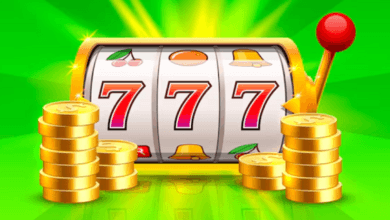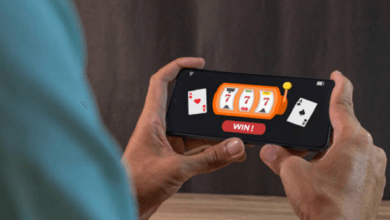Understanding Progressive Jackpots in Online Slot Games

Progressive jackpots are a popular feature in gaming slot online. They grow over time as players make bets. Each bet contributes a small amount to the jackpot pool, which keeps increasing until someone wins.
There are different types of progressive jackpots: standalone, local, and wide-area. Standalone jackpots are linked to a single machine, while local jackpots connect several machines in one casino. Wide-area jackpots are linked across multiple casinos, offering the largest prizes.
The bigger the jackpot pool, the higher the potential payout. Progressive jackpots add excitement and the chance of a big win to online slot games.
How do free spins work in online slot games?
Free spins in online slot games are special features that allow players to spin the reels without using their own money.
Usually, free spins are triggered by landing specific symbols or combinations on the reels, such as scatter symbols. During free spins, players can win without wagering additional funds, and any winnings are often added to their total balance.
Free spins can come with additional features like multipliers or expanding wilds, which can increase potential winnings. Sometimes, free spins are part of a bonus round or a promotion, enhancing the excitement and chances to win in the game.
What should players look for when choosing an online slot game to play?
When selecting an online slot game, players should consider several key factors. First, check the Return to Player (RTP) percentage, which indicates how much of the money wagered is returned to players over time.
Higher RTPs are generally better. Second, evaluate the volatility or variance of the game, which affects the frequency and size of payouts. Low volatility games offer frequent but smaller wins, while high volatility games offer larger, less frequent payouts.
Third, examine the theme and graphics of the game to ensure they match your preferences, as this affects the enjoyment factor. Fourth, look for bonus features such as free spins, multipliers, or mini-games, as these can increase the potential for bigger wins.
Check if the game offers a demo mode or free play option, allowing you to test it without financial risk. By considering these factors, players can choose a slot game that best fits their playing style and preferences.
Are there strategies for managing bankroll effectively while playing slots?
Before starting to play, decide how much money you’re willing to spend and stick to that amount. This ensures you don’t overspend and helps maintain control over your gambling.
Dividing Your Bankroll
Break down your total bankroll into smaller sessions. This way, you can spread your play over multiple sessions, reducing the risk of losing everything in one go.
Choosing the Right Slot
Select games with a lower bet size to extend your playtime. High denomination slots can deplete your bankroll quickly, so playing games with lower stakes might be more manageable.
Avoid Chasing Losses
If you’re losing, don’t try to win back your losses by increasing your bets. This can lead to even greater losses. Instead, stick to your budget and take breaks if needed.
Setting Win and Loss Limits
Decide in advance how much you’ll win or lose before quitting. Once you reach these limits, stop playing to avoid losing your winnings or overspending.
What role do return-to-player (RTP) percentages play in slot games?
The Return to Player (RTP) percentage in slot games indicates how much of the total wagered money is expected to be returned to players over time. For example, a game with a 96% RTP will return $96 for every $100 wagered in the long run.
Higher RTPs suggest better chances of receiving more back from your bets, making these games potentially more favorable. However, RTP is a long-term average, not a guarantee for short-term results, so individual sessions may vary.
RTP helps players assess the relative value of different slot games and make informed choices about which games to play.
FAQ’S
How do volatility or variance impact a slot game’s payout frequency?
Volatility, or variance, refers to the risk level of a slot game. **High volatility** slots have less frequent but larger payouts, meaning players may go longer without winning but can win big when they do. **Low volatility** slots offer more frequent payouts, but the wins are generally smaller. Understanding the volatility of a slot helps players choose games that match their risk tolerance and playing style.
What are “multiplier” symbols, and how do they affect winnings?
Multiplier symbols in slot games increase the amount of winnings from a spin. For example, if a win is worth $10 and a multiplier of 3x is active, the payout becomes $30. Multipliers can be applied to individual wins or to total winnings during bonus rounds, amplifying the rewards and adding excitement to the game.
Can you explain the significance of “hit frequency” in slot games?
Hit frequency refers to how often a slot game’s reels land on a winning combination. A higher hit frequency means players are more likely to win regularly, but the payouts may be smaller. Conversely, a lower hit frequency indicates wins are rarer, but they might be larger when they do occur. Understanding hit frequency helps players gauge how often they might expect wins during gameplay.
How do slot games incorporate gamification elements to engage players?
Slot games use gamification elements like progressive jackpots, achievements, and leaderboards to enhance player engagement. Features such as bonus rounds and mini-games add layers of interaction and excitement. These elements make gameplay more interactive and enjoyable, encouraging players to keep playing and exploring new features.




